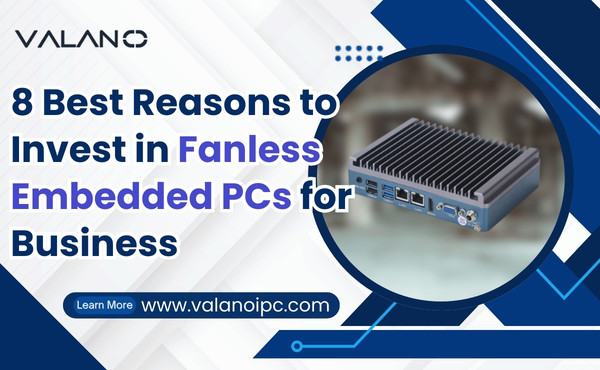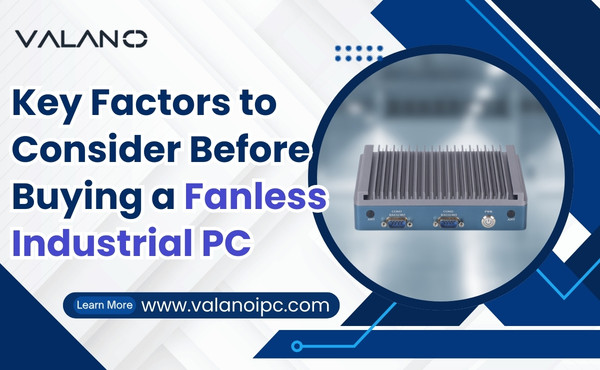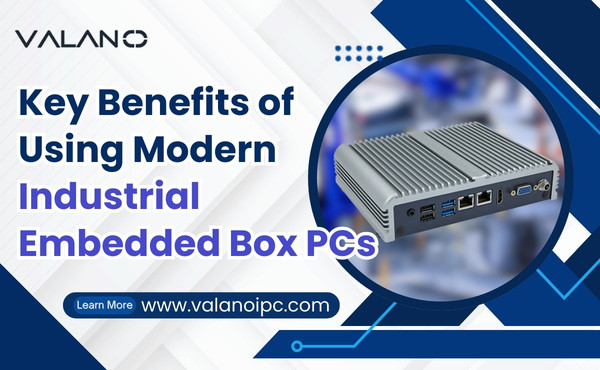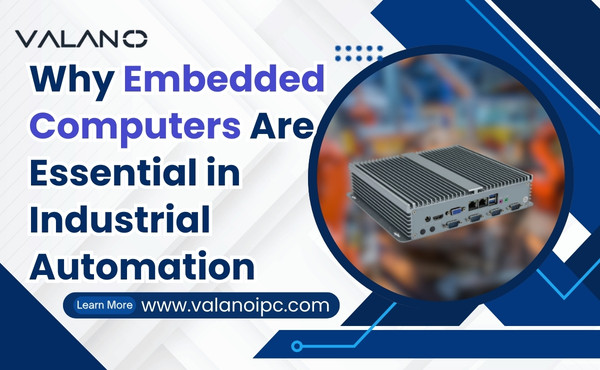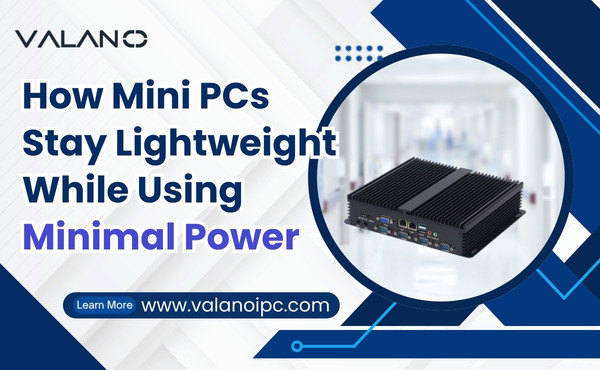Introduction to Industrial PCs
What Is an Industrial PC?
An industrial PC, also known as industrial computer or rugged computer, is a reliable computing device designed for challenging industrial environments.
These PCs are used in tasks such as machine control, automation of production processes, data collection, and even predictive maintenance to ensure continuous operational efficiency in factories.
Unlike office PCs, industrial PCs serve vertical markets and perform edge manufacturing analytics with real-time responsiveness.
Industrial PC vs. Consumer PC
There are sharp distinctions between an industrial PC and a consumer PC. As an example, industrial PCs have a protective casing which is shock-resistant, dust-proof, and water resistant, marking an IP65 or IP67 rating.
They withstand harsh vibrations, extreme temperatures, and operate continuously with fanless cooling. These features do not exist in consumer-grade desktops and laptops which will fail within hours in dusty, moist, or warm environments.
Industrial computers also feature longer system lifecycles, increasing their shelf life and decreasing e-waste.
Why Industrial PCs Are Essential in Harsh Environments
Factory floors, oilfields, and mining sites are not suitable for consumer PCs as they cannot endure high temperatures, extreme cold, or continuous vibration. Unlike standard computers, industrial PCs are specifically designed to withstand these conditions.
Such computers help to maintain system availability in the automotive, pharmaceutical, packaging, and food processing industries where industrial computer failure can be significantly detrimental.
Errors averted using industrial computers include expensive unplanned maintenance and replacement costs.
Key Benefits of Industrial PCs
Durability & Reliability
Rugged industrial PCs operates under extreme temperatures of -40 °C to +85 °C. Additionally, they are protected against dust and water ingress, heavy vibrations, and even mechanical shocks.
The need for bump or drop damage protection is answered with solid steel or aluminium enclosures that rugged handhelds boast. Industrial-grade SSDs and fanless designs mean avoided mechanical failures.
This level of reliability makes these computers ideal during 24/7 automatic production for assembly line control and at remote manufacturing sites.
Computing Performance
Majority of the Industrial PCs includes high class Intel Core i5/i7 or AMD Ryzen CPUs and ARM-based processors. Combined with NVMe SSDs and DDR4/DDR5 RAM, edge AI inference and machine learning can be executed in real time.
Advanced robotics, programmable logic control, and rapid data retrieval, along with other multifunctional, real-time, and time-bound operations can now be reliably performed due to swift data processing and seamless multitasking on these systems.
Flexibility and Customization
The modular structure of industrial PCs helps in customization. Companies may select from PCIe slots, serial ports, Ethernet controllers, GPU cards, and even touchscreen panels.
They are compatible with SCADA, PLCs, HMIs, legacy equipment, and even IoT networks. These systems, whether in the form of wall-mounted panel PCs or DIN-rail box PCs, are tailored for niche industrial applications running on Windows IoT, Linux, or a real-time operating system (RTOS).
Operational Efficiency & Maintenance
To maintain operational efficiency, industrial PCs are equipped with hot-swappable drives and redundant power supplies. They can also include RAID storage, watchdog timers, ECC memory, and remote management via IPMI or Intel AMT.
These capabilities enable remote diagnostics, predictive maintenance, and minimal repair time, thus streamlining operations while reducing support costs.
Data Handling and Integration
Acting as edge gateways with IIoT connectivity, industrial PCs integrate with sensors, actuators, robots, and MES/ERP systems. Their capabilities also include collecting telematics data, logging quality metrics, issuing alerts in real time, and allowing for analytics dashboards.
Such data centralization is crucial for business intelligence systems, smart factories, and performance monitoring systems for instantaneous responses, root-cause analysis, and improving productivity.
Extended Lifespan & Long-Term Support
Like office computers, industrial PCs use components for a period of 5–10 years. However, industrial PCs are designed to last even longer with additional support from vendors.
Life cycle support from vendors includes option modules and firmware patching, ensuring uptime. With reduced total cost of ownership, compliance costs, and avoiding forklift upgrades, the lifecycle support proves to be useful.
Industrial Certifications & Safety Compliance
Certified with CE, FCC, UL, and RoHS, most industrial PCs meet MIL-STD-810 and ATEX standards as well, focusing on explosive environments. Electromagnetic shielding or EMC also acts to minimize electromagnetic interference.
Such industries like chemical processing, pharmaceutical production, aerospace, energy generation need these safeguards to be legally compliant.
Fanless & Silent Operation
Operating silently, fanless industrial PCs strengthen mechanical stability while preventing thermal dust ingress and wear. Cleanrooms and labs require these environments to maintain sound sensitivity. Since these systems have no airflow, stable temperatures under load will increase system longevity.
Energy Efficiency
Today’s modern industrial PCs are optimized for low-power, and 24/7 efficiency using power-saving CPUs and solid-state storage. This also includes dynamic voltage scaling.
This enhances the energy efficiency of embedded computing systems and dispatched distributed control systems, aiding industries to achieve green manufacturing as well as sustainability objectives.
Practical Applications of Industrial PCs in Modern Factories
In factory automation, industrial Computers are used in machine vision systems to monitor processes, detect product defects, and control robotic assembly arms.
These systems integrate with PID controllers, CNC machines, various sensors, and barcode readers for real-time inspection. Industrial PCs serve as advanced data loggers which capture production history alongside downtime events and power usage for analytics platforms.
Industrial PCs handles edge computing task, because of that companies are positioned to improve input, decrease scrap, and introduce predictive maintenance capabilities.
Choosing the Right Industrial PC
Choosing an industrial PC involves considering temperature and vibration conditions, ingress protection as well as computing power, form factor (panel PC, box PC, DIN-rail), operating system, I/O interfaces like Ethernet, COM, USB and GPIO, expandability, mounting, and vendor support/ lifecycle.
For energy management and water treatment applications, robust solutions require checking thermal performance, shock ratings, and certifications. A smart factory system enables advanced modular design with layered IoT technology and self-learning automation, with a focus on future-proofing.
Conclusion
Industrial PCs are powerful and reliable, outperforming consumer-grade PCs in automation and edge computing, where real-time performance, longevity and low failure rates are crucial.
Investment in machine vision and smart factory peripherals ensures adaptable industrial PCs for changing market demands.
Additionally, energy-efficient Industrial PCs boost uptime while enhancing operational safety, benefitting manufacturers through long-term competitiveness and innovation.





